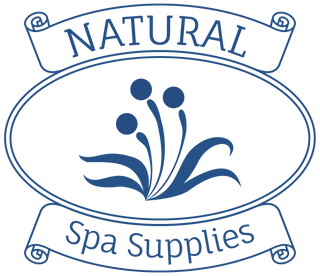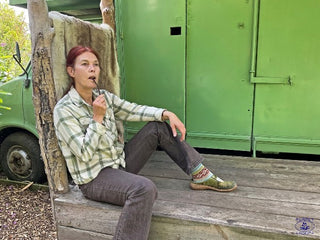Making camping more eco-friendly involves adopting practices and using gear that minimizes your impact on the environment. That's what we live for! Here are some eco camping tips to help you make your camping trips more environmentally friendly.
Camping is becoming ever more popular – it gives you a true taste of the great outdoors and you will always have a great adventure. Often the journey is just as exciting as the camping.
Whether you take your own tent in a backpack and arrive on foot, by horse, canoe or car, or whether you bring your own caravan, sleep next to your vehicle under an awning, seek out a mountain bothy or hang a hammock from trees, or step straight into a pre-erected bell tent or yurt - having a more environmentally friendly approach makes you feel more connected to nature.
Ways to Make Your Camping Trips More Sustainable
First, let's begin with legal and safety. Check that you have the landowners permission to stay on the land. In Scotland, you can camp in most open spaces, but there are some restrictions, so do check. For your own safety, let people back home know where you are going and for how long. Take paper maps, a compass, a whistle and a torch. Don’t rely on your mobile phone.
- Buy equipment you can use all year round
- Use chemical-free and plastic-free products
- Minimize trash and waste (see tips below)
- Use amphora pots for water instead of plastic bottles
Buy Equipment You Can Use All Year Round
You will need some specialist equipment such as a tent, pegs and a mallet, but beyond that, try to avoid buying products which you only use while camping – instead choose ‘gear’ that you can use all year round in your home. I would also avoid buying any supplies in ‘travel sizes’ – as you won’t get the best value for money and they generally come packed in plastic.
Eco-Friendly Camping Tips: How to Leave No Trace
Let’s face it, camping or caravanning is all about embracing the great outdoors. Right now nature needs our love more than ever – set out to leave no signs that you have ever been there following ‘leave no trace’ principles. This is more than just clearing up before departing, but also using chemical-free products which rapidly biodegrade and return to nature while you are there and buying plastic-free supplies to take with you.
Opt for durable camping gear, reusable food and water containers and utensils. Avoid single-use plastics and disposable items. Opt for our scrubbies and lint-free organic towels instead of disposable paper. We’ll give you lots of ideas on the chemical-free and plastic-free alternatives a bit further down.
Reduce Energy Consumption
Use energy-efficient equipment like LED lanterns and solar-powered chargers for your electronic devices. Only use devises that can run on rechargeable batteries.
If you are tempted to use candles, only use those in special ‘candle lanterns’ which are safer if they get knocked over to avoid a tent fire. Always keep a fire extinguisher in your tent or caravan and know how to use it.
Toilet Arrangements
Stick to established campsites to avoid damaging fragile ecosystems, and use public toilets if they are available rather than going out in the open. Bring a small spade or trowel and toilet paper to bury human waste in a pit as it is a danger to animals, not only spreading infections such as human tapeworm to cattle, but potentially poisoning animals with medicine residues. Camp at least 30m away from water sources to protect aquatic habitats from pollution.
Lighting Fires
You need the landowner's permission before lighting a fire. Also, check the local regulations and bylaws. If you do light a fire, keep it small and under control. Use dead, naturally fallen wood for fires rather than cutting live trees or branches, but be aware that this deadwood will spark and changes in wind patterns can make even a small fire dangerous. Even when lighting a campfire is generally allowed, if the ground and vegetation are dry, or in windy conditions, it is not safe to light a fire. Never leave the fire unattended and extinguish the fire before going to bed. If possible carry a fire extinguisher with you or keep a bucket of water near the fire. Take a stove in case you can’t light a fire.
Respect Wildlife
Keep your noise levels down so you don't disturb wildlife.
Observe wildlife from a distance using binoculars or a night vision camera and avoid feeding wild animals.
Consider making video or sound recordings, drawing or painting the landscape, or taking part in citizen science projects - observing and recording particular species.
Store food and rubbish securely to prevent attracting animals such as rats to your campsite. Be familiar with the Countryside Code.
Take Drinking Water With You
If travelling to your campsite in a vehicle, consider filling one of our clay Amphoras with tap water before you set out on your journey. Keep the Amphora in a waterproof container (such as a bucket or bowl), with the cork tied on with string. Not only could ready-to-drink water come in handy if there are traffic delays, if you arrive at the campsite in the dark, it can be difficult to locate drinking water.
I would caution people about collecting drinking water from streams and lakes which requires expertise to render safe for drinking. Collect water from safe sources such a springs or taps.

For example, when we used to take part in historical and bushcraft events, we would prefill the 7 litre Amphora with water so that on arrival at our destination, we can get straight on with making that all important mug of tea. Plenty more water would be left for morning tea/coffee with enough still for washing up and hand hygiene. We do have smaller amphora sizes and they can be refilled several times a day, so even the 2L Amphora might be handy for carrying and storing water in other situations or the 1L amphora could hang off your backpack.
Use Biodegradable Cleaning, Washing and Dental Care Products (Plastic Free)
There are many benefits to using biodegradable cleaning, washing, and dental care products when camping. These products are designed to break down naturally in the environment, so they won't pollute waterways or harm wildlife. Our cleaning products are made from plant-based ingredients (not petro-chemicals), so they're better for your health and the environment.
- They're better for the environment. Biodegradable products won't pollute waterways or harm wildlife. This is important because camping often takes place in sensitive natural areas.
- They're better for your health. Biodegradable products are often made from plant-based ingredients, so they're gentler on your skin and your body. They're also free of harsh chemicals, which can be harmful to your health.
- They're more sustainable. Biodegradable products are made from renewable resources, so they're more sustainable than traditional products. This is important because we need to reduce our reliance on non-renewable resources.
- They're easier to pack. Biodegradable products are often packaged in recyclable or compostable materials, so they're easier to pack and dispose of. This can save you space in your backpack and reduce your impact on the environment. Most of the products we recommend are supplied in their dry form, cutting down on weight.
Food Hygiene
When washing dishes or cleaning your gear, choose biodegradable, eco-friendly cleaning products to minimize water pollution. Cooking and food hygiene are very important while camping as microbes can live in the soil for years. Wild animals spread parasites and diseases in their faeces and urine. Fungal spores and parasite eggs can also be transported in the air.
Keep your cooking ware, plates and utensils off the ground and wash everything up straight after use to avoid attracting slugs and insects such as ants.





Biodegradable Soap Tips
We use organic Soapnuts, a dried tree fruit to make our washing up liquid. Just add cold water in advance and keep them ready to use in a jar, or pour hot water over them at the point of use, shake the jar, and you have a water based liquid detergent for washing dishes and other surfaces. Top up with more water to make more detergent.
We always carry a jar of Hemp Oil Soap with us. This is a concentrated oil based soap that has remarkable antibacterial properties. So it is perfect for hand hygiene out in the wild. This soap is also great at cleaning oily, greasy things and even burnt pans. So you can use it for your frying pan, where it will also clean away black fire scorch marks from under the frying pan.
Take a Scrubby - a cotton cleaning pad stiffened with tree resin. This will enable you to wash your dishes really quickly and can be used with either soap.
After use, both of these soaps will fully biodegrade within a day or two in the soil. Please don’t throw soapy water in a watercourse. It needs to broken down in the soil first.
Personal Hygiene
Teeth
It is so important to brush your teeth twice a day. With 20 billion bacteria in a clean mouth, their numbers double every five hours. With just a single day without brushing, these bacterial colonies increase up to 100 billion. It is easy at that point for tooth and gum abscesses to form and that’s no fun while you are on holiday.
If you are new to the concept of brushing your teeth with tree sticks, such as our organic Miswak or Olive Sticks, a good time to start is while sitting around the campfire in the evenings. Within a short time, your ‘stick’ will begin to resemble a toothbrush with natural plant fibre bristles.
If your pet dog comes camping too, it is an ideal opportunity to introduce the toothbrush sticks to them. Take their stick away after a minute or so they don’t devour it -- you can introduce it again the following evening. Do this every day and you could reduce vet bills for descaling and extractions.
If you are a minimalist-style camper, accustomed to hanging a hammock between trees, to keep your teeth healthy, at the very least you would need either a Miswak or Olive toothbrush stick and some dental floss – either the Radius unflavoured silk floss or the Dental Lace silk minty floss. In extreme survival situations, I am sure the silk floss could be put to other uses too.
You can by these natural dental products separately or explore our Natural Teeth Care Kit...
Discover Our Natural Teeth and Gum Oral Care Kit
Green Clay and Activated Charcoal Powder for Toothpaste, Bristle Toothbrushes, Miswak Stick, Olive Stick and Floss
At the other extreme in a caravan or a luxury yurt, you could bring your regular Ionic Toothbrush or Sonic Ionic Toothbrush and take advantage of the natural light levels, using natural sunlight to power these toothbrushes.
Whether you are using tree sticks or high-tech methods – really, don’t forget to pack your toothbrush and your floss.
Eco-Friendly Washing and Skincare While Camping
Using eco-friendly skincare products for eco-camping is a great way to protect your skin and the environment. These products are gentler on your skin, so they won't irritate your skin or cause breakouts. They are also better for the environment because they don't contain harsh chemicals that can pollute waterways or harm wildlife.
Here are some specific eco-friendly skincare products that you can use for eco-camping:
- Natural Face Wash: Look for a face wash that is made with natural ingredients, pine tar soap, our multipurpose hemp oil soap, natural sea sponges, or organic lavender. These ingredients will cleanse your skin without stripping it of its natural oils.
- Body wash: Look for a body wash that is made with natural ingredients, such rhassoul clay. These ingredients will hydrate your skin and leave it feeling soft and smooth.
- Soap: Look for a multipurpose soap that is made with natural ingredients, such hemp oil soap for washing, cleaning and shaving. This naturally antimicrobial soap, has intense cleaning power, yet it is gentle on your skin, so it can be used even if you have sensitive skin.
- Natural Hair Products: Look for a shampoo and conditioner that is made with natural ingredients, These ingredients will hydrate your hair and leave it feeling soft and manageable, they come in a dried form, saving weight, and they will start biodegrading as soon as they hit the soil.
- Deodorant: Look for a deodorant that is made with natural ingredients (such using Alum as deodorant). With no fragrance, and working effectively to neutralise body odour, we are more likely to observe wild animals downwind. The same argument applies to all our products - because they come straight from nature, when we use them, 'scent-wise', we fit into the natural environment. This earth-grown alum crystal is also used for natural insect bite relief, so always carry a piece with you.

Going away and taking a break from our normal routines provides a great opportunity time to put our eco camping tips into practise - think of that as part of your adventure. We can be more mindful, using natural products while in nature and this gives us that all important health-enhancing connection to the natural world.
We hope that you will switch to natural products during your break away that you will come to appreciate how natural products are better in every way - and that you will continue to use them on your return home.


